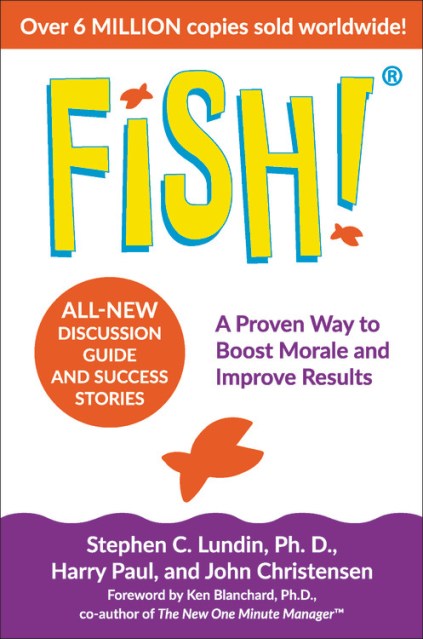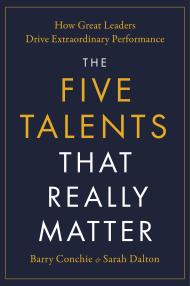By clicking “Accept,” you agree to the use of cookies and similar technologies on your device as set forth in our Cookie Policy and our Privacy Policy. Please note that certain cookies are essential for this website to function properly and do not require user consent to be deployed.
Fish!
A Proven Way to Boost Morale and Improve Results
Contributors
By John Christensen
By Harry Paul
Formats and Prices
- On Sale
- Mar 10, 2020
- Page Count
- 160 pages
- Publisher
- Grand Central Publishing
- ISBN-13
- 9780306846199
Price
$28.00Price
$36.00 CADFormat
Format:
- Hardcover (Revised) $28.00 $36.00 CAD
- ebook (Revised) $13.99 $17.99 CAD
- Audiobook Download (Unabridged) $14.99
This item is a preorder. Your payment method will be charged immediately, and the product is expected to ship on or around March 10, 2020. This date is subject to change due to shipping delays beyond our control.
Buy from Other Retailers:
The powerful parable that has helped millions to see their lives and work in a new way — now revised and updated to celebrate 20 years of working with greater purpose!
It’s a rainy day in Seattle, and on the third floor of First Guarantee Financial, people have stopped believing they can make a difference. To new manager Mary Jane Ramirez, the challenge of bringing life back to her unenthusiastic and unmotivated team seems impossible — until she discovers an incredibly successful workplace down the street, where the employees are so alive and passionate that people stop just to watch them work!
FISH! is the remarkable story of what happens when Mary Jane seeks the help of these unlikely business “experts” and learns their secret: four simple practices that, when applied daily, help anyone to be more energized, effective, and fulfilled.
Filled with inspiration and timeless wisdom that will resonate with anyone in any field or career level, FISH! is one of the most popular business parables of all time. People in organizations around the world use its practical lessons to improve customer service, build trust and teamwork, bolster leadership, and increase employee satisfaction. They also use the lessons to strengthen personal relationships, and to live with greater purpose and happiness. FISH! will help you discover the amazing power that is already inside you to make a positive difference — wherever you are in life.
Newsletter Signup
By clicking ‘Sign Up,’ I acknowledge that I have read and agree to Hachette Book Group’s Privacy Policy and Terms of Use






